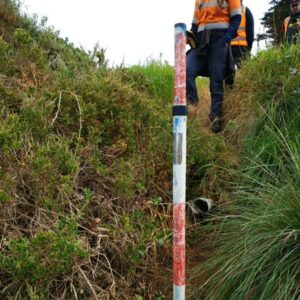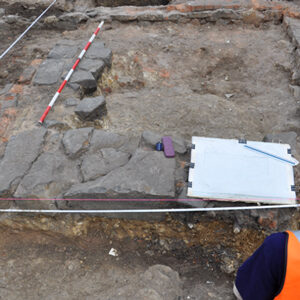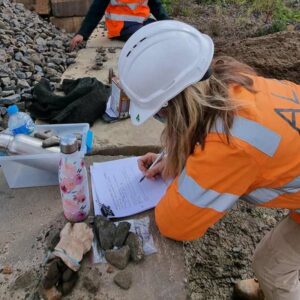If you’ve come to learn about what a cultural heritage assessment is, and how it may relate to your planning project, then welcome - you’re in the right place.
Cultural heritage can be complex and a bit confusing, so, in this post we’re going to cover a few key points about the cultural heritage process:
- What does cultural heritage sensitivity mean?
- What is a cultural heritage assessment?
- What is the purpose of a cultural heritage assessment?
- What does a cultural heritage advisor do?
So, you ask, what is a cultural heritage assessment? Let us explain...
What does cultural heritage sensitivity mean?
 'Areas of cultural heritage sensitivity' are defined in the Aboriginal Heritage Regulations as landforms and soil types where Aboriginal places are likely to be located. These include land within 200 metres of named waterways and land within 50 metres of registered Aboriginal cultural heritage places. See, it is complex because it is governed by legislation!
'Areas of cultural heritage sensitivity' are defined in the Aboriginal Heritage Regulations as landforms and soil types where Aboriginal places are likely to be located. These include land within 200 metres of named waterways and land within 50 metres of registered Aboriginal cultural heritage places. See, it is complex because it is governed by legislation!
Sure, but what is a cultural heritage assessment and how does it relate to cultural heritage sensitivity? We can tell you about that...
What is a cultural heritage assessment?
 Basically, a cultural heritage assessment is an assessment of an area that has Aboriginal cultural heritage sensitivity. One of our registered Cultural Heritage Advisors will assess what actions needs to be taken before, during and after any development activity takes place, to ensure compliance with planning regulations.
Basically, a cultural heritage assessment is an assessment of an area that has Aboriginal cultural heritage sensitivity. One of our registered Cultural Heritage Advisors will assess what actions needs to be taken before, during and after any development activity takes place, to ensure compliance with planning regulations.
Great, but what is the purpose of a cultural heritage assessment, and do you even need one? Let’s talk about that next...
What is the purpose of a cultural heritage assessment?
 Well, most likely you’ve been told by a regulatory body that you need to consider cultural heritage sensitivity in your planning application. A Cultural Heritage Assessment can help work out and maybe avoid the need for developing a more involved Cultural Heritage Management Plan (CHMP).
Well, most likely you’ve been told by a regulatory body that you need to consider cultural heritage sensitivity in your planning application. A Cultural Heritage Assessment can help work out and maybe avoid the need for developing a more involved Cultural Heritage Management Plan (CHMP).
Of course, this is dependent on the findings of the investigation by a cultural heritage advisor but demonstrating that a CHMP is not required will result in significant time and cost savings for your project.
Ok, but what does a cultural heritage advisor do and why do I need one? Let’s look at how our team can help you...
What does cultural heritage advisor do?
Let’s talk about us!!! At ALA we have a team of archaeologists who are individually listed as Cultural Heritage Advisors under the Aboriginal Heritage Act 2006. This means they are recognised as qualified to work in Victoria under the Aboriginal Heritage Act 2006 (Act) doing the following:
- working with project sponsors in the preparation of cultural heritage management plans
- conducting cultural heritage audits
- supervising activities authorised by a cultural heritage permit.
Our team can carry out assessments, do archaeological excavations, and prepare written technical reports which meet regulatory standards.
Actually, it’s pretty exciting being a cultural heritage advisor and you get to travel to some of Victoria’s most beautiful places.
Summary:
So that’s the basics of a Cultural Heritage Assessment. It’s not something you can do yourself (unless you’re a registered Heritage Advisor), so our team are who you need to get the heritage aspects of your planning process in order. We’d love to get on board with your project and looki at how cultural heritage sensitivity may impact your plans.
Now it’s your turn! Get in contact with us and let’s start the process of getting your heritage needs on track.
What are areas of cultural sensitivity?
'Areas of cultural heritage sensitivity' are defined in the Aboriginal Heritage Regulations as landforms and soil types where Aboriginal places are likely to be located. These include land within 200 metres of named waterways and land within 50 metres of registered Aboriginal cultural heritage places
What is a Cultural Heritage Assessment?
The assessment of an area that has Aboriginal cultural heritage sensitivity. A registered Cultural Heritage Advisor will assess what actions need to be taken before, during and after any development activity to ensure compliance with planning regulations.
What is the purpose of a Cultural Heritage Assessment?
It can help work out and maybe avoid the need for developing a more involved Cultural Heritage Management Plan (CHMP).
What does a Cultural Heritage Advisor do?
They work with project sponsors in the preparation of cultural heritage management plans, conduct cultural heritage audits, and supervise activities authorised by a cultural heritage permit.







Follow Us!